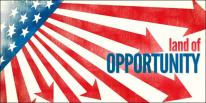Unlike my previous posts, this one is a bit more serious and gives more background of some of the struggles and experiences my family has been through while immigrating to America and making this life for themselves and our family.
I decided to interview my mom to ask her a few questions about her immigration process and how it has shaped the person she is today. While interviewing her, I learned so much about her and how much she has sacrificed and had to push through to become the successful woman she is today. I am forever grateful for my parents’ hardships of coming to America and and inspired by them everyday.
I hope you enjoy this post and are inspired to ask your relatives similar questions to learn more about your families past.
What was your immigration process like?
 “Well, first my parents and I left Ukraine and went to Vienna, Austria. Instead of staying in beautiful castles like everyone else,we were put in army barracks because of the 6-day war. Then we lived in Belgium for a few months. After that we lived in Israel for 10 months and then Germany, where we were seeking political asylum. This entire process took 2 years; we left Ukraine in ’74 and got to America is ’76.
“Well, first my parents and I left Ukraine and went to Vienna, Austria. Instead of staying in beautiful castles like everyone else,we were put in army barracks because of the 6-day war. Then we lived in Belgium for a few months. After that we lived in Israel for 10 months and then Germany, where we were seeking political asylum. This entire process took 2 years; we left Ukraine in ’74 and got to America is ’76.
When we finally got to America, it was extremely difficult… Well actually, the entire process was difficult, scary, overwhelming and extremely unexpected. The process took a toll on the family for sure. I felt like I was robbed of a childhood. I had to mature quickly, man up, and face harsh reality at an extremely young age. I was constantly worried and never knew when I would eat next, where I would sleep next or if a bomb would explode at any moment. I remember when I lived in Israel, I wasn’t allowed to cut a loaf of bread or open an envelope because there were bombs in them sometimes.
Once in America, we were the only Caucasian family in the agency that adopted the project we were in. It was scary and we had to develop tough skin very quickly… and if we didn’t… we would be killed. The only way to survive was to toughen up, so we did. I had to study and work hard to get out of that environment; and I did. I learned English and went to school and my parents got jobs. Slowly we were able to get minimal basic pay and finally were able to move out of the neighborhood and assimilate with society.”
How has your view of America changed from when you were immigrating to now?

“Some things have become more difficult and some more simple. Speaking the language, assimilating, learning, and affording things enable me a certain freedom and I feel like I belong. But, material things complicate things. There was a sense of simplicity and wonder when I first came here and now, there is a sense of entitlement because I belong. Over the 40 years that I’ve been here, I can call it home. Struggle and achievement led me here. It’s who I am and where I belong. Before I would never imagine saying that “I’m American.” But now, I identify as an American along with Russian and Jewish. I have earned my place.”
What are some of the biggest challenges you’ve faced as being an expatriate?
“The English language and not having ancestors that came here to make a name for themselves/our family/money. It’s hard seeing my kids’ friends families have alumni at great schools, or have advantages of having a family history or name in America. From a discriminatory perspective, people still perceive me as not good enough because of being first generation.”
How do you balance your two cultures?
“Because the assimilation process has been slow and natural, I feel like I’ve always tried to balance them. For example, on Thanksgiving, we have turkey (American) but the table is full of Russians and food. It;s who we are. My DNA is a mix of everything : Jewish, American, Russian. The balance is automatic and comes naturally.”
My interview with my mom was really eye opening for me. She is not only a role model for me as a parent but also as a hard worker. Her story inspires me to never give up, and always to make her and my family proud after making sacrifices for me to live the life I have here in America. Thank you for everything that you have done and do for me, Vicky (sister) and our family!
sources:
